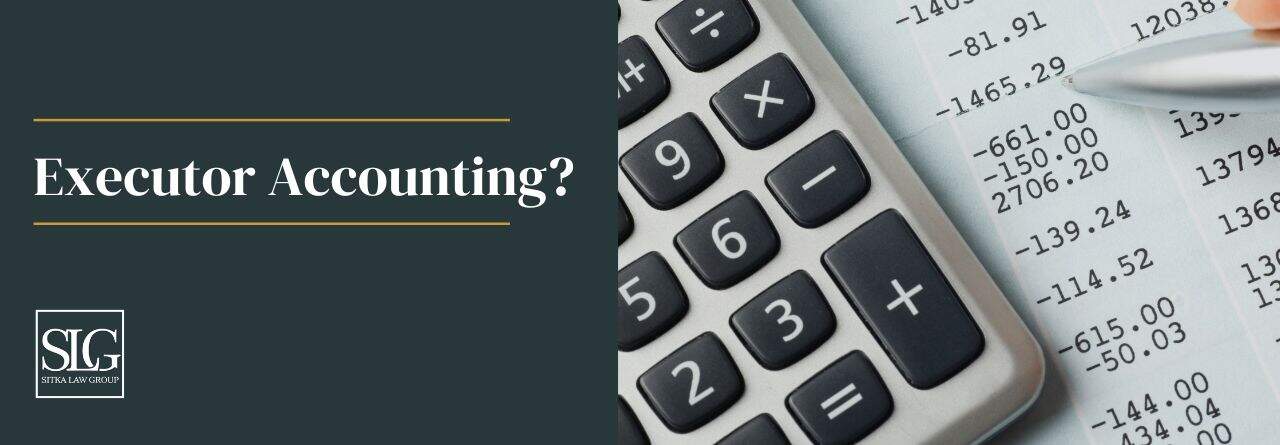
23 Apr What Is an Executor’s Accounting (and What Do You Include)?
If you’ve been named as the executor of an estate in British Columbia, you’ve taken on an important legal and financial responsibility. One of your key duties is to provide an executor’s accounting—a detailed record of all financial transactions relating to the estate. Whether you’re preparing to pass accounts formally through the courts or simply reporting to beneficiaries, understanding what’s involved is essential.
What Is an Executor’s Accounting?
An executor’s accounting is a comprehensive financial report that shows how the estate has been managed from the date of death until the time the estate is ready for distribution. It ensures transparency and allows beneficiaries—and sometimes the court—to review how the executor has handled the estate’s assets and liabilities.
When Is an Accounting Required?
In British Columbia, an executor typically must provide an accounting:
- Informally to beneficiaries if they all agree and waive the requirement for formal court approval (known as passing of accounts); or
- Formally to the court if the beneficiaries request it, if there are minor or incapable beneficiaries, or if there is any dispute or concern about the executor’s handling of the estate.
Even if a formal court process is not required, beneficiaries are entitled to a clear accounting before they agree to release the executor from liability.
What Does the Accounting Include?
An executor’s accounting should be clear, organized, and supported by documentation. At a minimum, it should include:
- Statement of Assets and Liabilities at Date of Death
- Real estate
- Bank accounts
- Investments
- Personal property (e.g. vehicles, jewelry, household items)
- Outstanding debts and liabilities
- Capital Receipts
- Proceeds from the sale of assets
- Refunds or insurance payouts
- Investment income earned after death
- Capital Disbursements
- Funeral expenses
- Legal and accounting fees
- Debt payments
- Probate fees
- Costs of maintaining or selling estate property
- Income Receipts and Disbursements
- Income earned during the administration period (e.g. interest, rent)
- Related expenses (e.g. property maintenance, tax payments)
- Executor’s Fees and Disbursements
Depending on the wording in the Will, executors in BC may be able to claim a fee (up to 5% of the gross value of the estate, subject to reasonableness), as well as reimbursement for reasonable out-of-pocket expenses. There may be CPP deductions, and any fees are taxable income to the executor. The executor should speak with their accountant to determine the tax consequences of taking an executor’s fee.
- Proposed Distribution to Beneficiaries
- Summary of what each beneficiary will receive
- Any holdbacks for taxes or contingencies
Tips for Executors
- Keep detailed records from day one. Use spreadsheets or accounting software and store all receipts and correspondence.
- Communicate regularly with beneficiaries. Transparency builds trust and can help avoid disputes.
- Seek legal or accounting advice. Professional guidance can save time, reduce stress, and protect you from liability.
Final Thoughts
Preparing an executor’s accounting is a key part of closing out an estate in BC. Whether the estate is simple or complex, a well-prepared accounting helps ensure the process is fair, efficient, and legally sound.
If you’ve been appointed as an executor and need support navigating your duties, Sitka Law Group is here to help. Our experienced estate lawyers provide practical, compassionate guidance to help you fulfill your responsibilities with confidence. And if it ever feels like too much, we can take over and manage the process on your behalf.
Contact us today to schedule a consultation.
We’re conveniently located on Shelbourne Street, near the intersection of Victoria, Oak Bay, and Saanich.
This article is current as of April 23, 2025, and is intended for general information purposes only. It is not intended to provide legal advice and should not be relied upon as such. Readers with concerns about how this may apply to their particular situation should seek independent legal advice.



